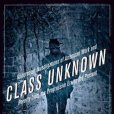媒體推薦
"Pittenger's fascinating account of cross-class journeys yields rich insight into the changing constructions of class, race, and self in modern America and brings into focus a little-studied aspect of the history of social science, journalism, and popular culture."-Dorothy Ross,Arthur O. Lovejoy Professor of History, The Johns Hopkins University "Mark Pittenger has written a fascinating gem of a book."-Robert J. Johnston,Journal of the Illinois State Historical Society "In charting territories mostly unknown to contemporary scholars in cultural studies and the social sciences and putting the various undercover investigations in their proper social and intellectual contexts, the author has made an invaluable contribution to the historiography of American social thought."-Journal of American Culture "Before anthropologists became 'participant observers' or Norman Mailer discovered the 'new journalism,' generations of socially engaged Americans assumed undercover identities and conducted covert investigations to experience and report upon the reality of life for the nation's poor and marginalized. Mark Pittenger's original and highly readable book illuminates the motivations and strategies of these reform-minded investigators, and the work they produced. Class Unknown enlarges our understanding of journalism, reform, and the shifting perceptions of social class in America. I enjoyed this book and learned from it." -Paul Boyer,Editor, The Oxford Companion to United States History "Pittenger provides a memorable meditation on America's ongoing struggle to come to terms with class division."-Journal of Interdisciplinary History "A highly original and thorough account...Class Unknown makes a unique and significant contribution to scholarship on poverty and reform in American history."-Robert Bauman,History: Reviews of New Books "Mark Pittenger expertly explores this body of work in his engaging new book...Class Unknown makes important contributions to social science history and cultural studies of labor and should be a staple of upper undergraduate and graduate courses." -Laura M. Westhoff,American Historical Review "With smooth prose, expansive reflection, and unerring eye for telling detail, Pittenger turns what may superficially seem an esoteric and even quirky subject into a major work of intellectual history and cultural criticism. The undercover investigations that he shows to be a mainstay of the American documentary tradition--from the writings of the Progressive Walter Wyckoff, the managerial studies of Elton Mayo, and the radical portraits of Donald Roy through books and film treatments of Laura Hobson (Gentlemen's Agreement) and Howard Griffin (Black Like Me) to the present-day commentaries of Barbara Ehrenreich--regularly attempt to 'domesticate difference'; i.e. they help a largely white, middle-class public to sympathize with and/or better control the behavior of an elusive ethnic, class, or racial Other. Whereas his 'class-passers' and 'down-and-outers' sought to familiarize readers with people rendered distant from themselves by their poverty or ascribed group identity, so Pittenger freshly portrays the investigators as a distinct set of middle-class professionals well worth knowing."-Leon Fink,University of Illinois at Chicago "Pittenger effectively raises the contents, the morals, and the justifications of these down-and-outers...Perhaps the nicest compliment that can be given to Class Unknown is that it inspires me to teach my students how sociologists (and journalists, activists, and novelists) have used undercover strategies to depict the interaction order. We burrow beneath the surface, pretending to be what we are not, but at our best we emerge with sharper eyes and a more compassionate heart."-Gary Alan Fine,American Journal of Sociology "A wide-ranging, erudite, and fascinating analysis of how various journalists, academics, and novelists shed their identities to become the 'Other.' From the Gilded Age to the present, Pittenger takes us on a journey with temporary down-and-outers as they tramp the countryside, experience the urban netherworld, and cross racial lines. He uncovers a tradition of critique and elitism; a struggle over the meaning of authenticity and more emerge in these pages."-George B. Cotkin,California Polytechnic State University
作者簡介
Mark Pittenger is Associate Professor of History at the University of Colorado, Boulder. He is the author of American Socialists and Evolutionary Thought, 1870 - 1920.
目錄
Part I. A World of Difference: Constructing the Underclassin Progressive America, 1890-19201. Writing Class in a World of DifferencePart II. Between the Wars, 1920-19412. Vagabondage and Efficiency: The 1920s 3. Finding Facts: The Great Depression, from the Bottom UpPart III. The Declining Significance of Class, 1941-19614. War and Peace, Class and Culture 5. Crossing New Lines: From Gentleman's Agreement to Black Like Me Part IV. Conclusion6. Finding the Line in Postmodern America, 1960-2010

